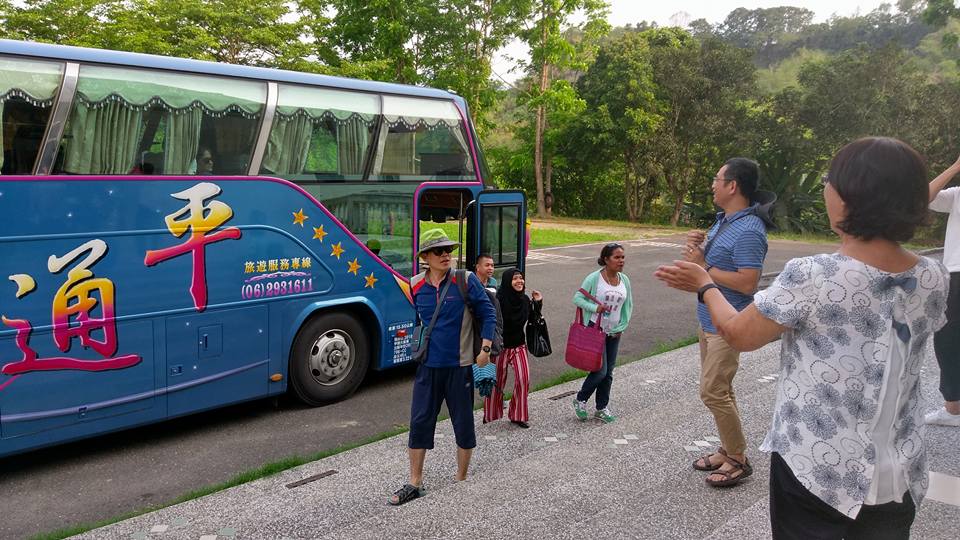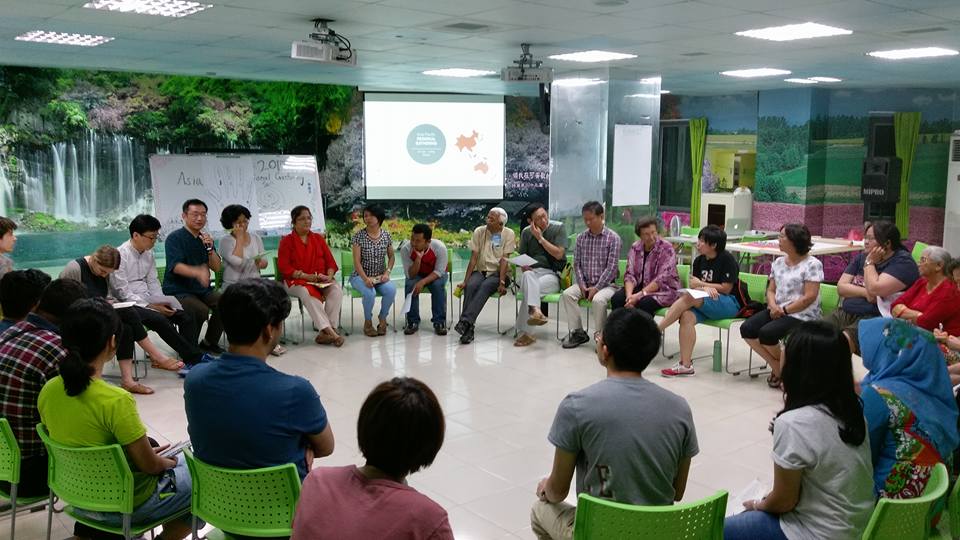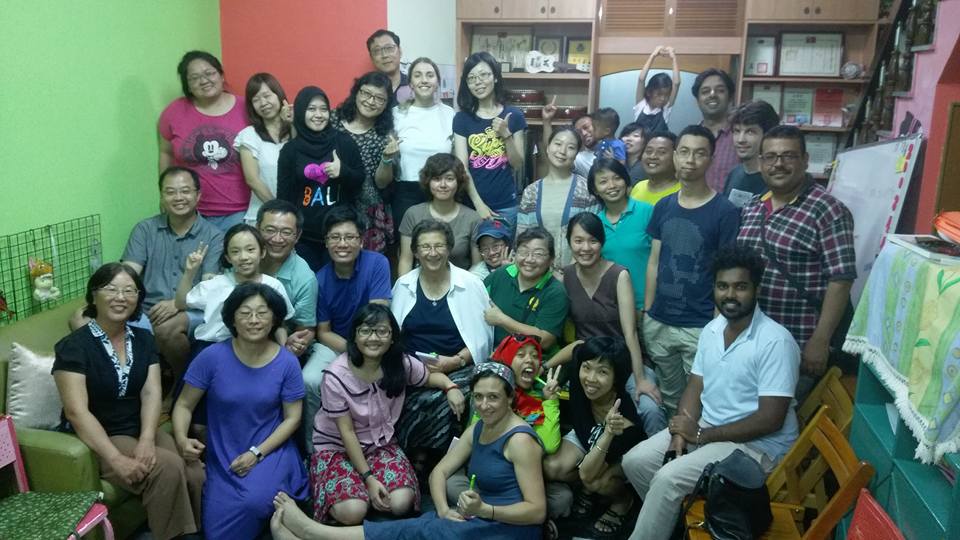‘Track 3 Diplomacy’ Connects Australia with Asia
Extremism. Inequalities. Environmental degradation. The challenges are immense, and they transcend borders. Since the 1950s, Initiatives of Change (IofC) has promoted connections between Australia and countries in the region, to develop people-to-people solutions to some of the most pressing problems of the day. This year’s Asia-Pacific Regional Gathering of IofC people pondered on achievements and emerging challenges.

Athalia Zwartz, Executive Officer of IofC Australia, attended the Asia-Pacific Regional Gathering and highlighted the role played by Australia over the years in training and equipping individuals to work for change in their own countries. ‘From South Korea alone, there have been over 100 visitors who have stayed at Armagh, IofC’s Asia- Pacific residential centre,’ she said. She noted that, while visits, exchanges and training programs have left a rich legacy of personal relationships between Australians and others in the region, participants had agreed there is a need to re-examine how well programs in the region are addressing the issues of today.
‘In Indonesia, for example, there are rising tensions between different groups of Muslims,’ Athalia observed. ‘There are also high numbers of refugees who are there as a result of Australia’s strict policies against asylum seekers arriving by boat. These create big questions for the region, for Australia, and for us at IofC. How do we respond? What sorts of partnerships and approaches are needed?’
International conferences, meetings and exchange visits have been an important means of building connections through IofC networks. From 2015 to 2017, several important meetings took place in the Asia-Pacific, including regional youth conferences in Cambodia and Indonesia, a dialogue on Just Governance in India, an international Farmers’ Dialogue in Cambodia, and annual forums organized by IofC in Japan. Such meetings provide the opportunity and ‘safe spaces’ for individuals to discover the commonalities they share with others who at first may seem so different from themselves.

IofC’s approach has been to promote personal encounters, which then become a foundation for joint action as people discover what concerns they have in common. Barbara Lawler, a full-time volunteer with IofC for many years, described a ‘lightbulb moment’ when she realized that her own perspective had shifted.
‘It was 2005,’ she recalled. ‘I was at Changi Airport in Singapore, on my way to Jakarta to invite community networks to a peace conference in Brisbane. I was asking myself why I was going to Indonesia by myself. Then a still small voice in my heart replied: “But you are not going to be by yourself. You are going to be with your Indonesian friends.”‘
‘I was startled by this clarity,’ said Barbara. ‘It made me realise quite a few things about my attitudes.’ With a new-found openness, she completed her visit, in which she ended up staying with Lily Munir, a Muslim woman leader and academic who founded the Center for Pesantren and Democracy Studies (CEPDES), a not-for-profit that seeks to promote democracy and educate fellow-Muslims about human rights and gender equality in Islam. ‘We became close friends,’ said Barbara. ‘And later she came to the Creators of Peace conference in Australia.’

Such regional events have witnessed high levels of openness and bridge-building among participants of different backgrounds and ethnicities. One such conference is the annual Asia Pacific Youth Conferences (APYC), which regularly brings together 18- to 35-year olds from around the region, many of whom have had few opportunities to meet their counterparts in other countries. Participants at some of these meetings have chosen to acknowledge historic wrongs, leading to joint action to heal the past together.
The 2006 APYC in Indonesia led to a series of Cambodia-Viet Nam dialogue events organized by youth from the two countries, after participants realized the legacy of mistrust they still harboured individually towards each other as a result of difficult relationships between the nations. In 2009, Indonesian women at a Creators of Peace conference in Sydney apologized to participants from Timor-Leste for the wrongs done by Indonesia to the Timorese people. At the APYC in Melbourne in 2011, there was a reconciliation between Chinese Indonesians and others from their country, as well as between Indonesians and Timorese. At the same meeting, an Australian apologized to the Timorese for the greed and injustice of Australia’s behavior regarding the oil and gas in the Timor Sea.
Dr. Sally Burt, a diplomatic historian who teaches military history at the Australian Defence Force Academy in Canberra, noted that IofC’s role in the region could be described as ‘Track 3’ diplomacy. ‘Diplomacy happens on many levels. Formal government-to-government negotiations are referred to as Track 1 diplomacy, while Track 2 refers to informal discussions and problem-solving activities that are undertaken by NGOs, other professionals or experts to develop better understand countries’ positions,’ she said. ‘Track 3 focuses on relationship-building at the grassroots level, and allows for local communities, experiencing hostility or conflict, to come together through the development and articulation of a common vision.’
For many in the IofC network, the process of generating a common vision is rooted in maintaining shared practices as a community of neighbours in the region. Reflecting on the Asia-Pacific Regional Gathering, Athalia observed, ‘I am so grateful for the learning, the sharing, the reflecting, and the relationships. I met many people for the first time, but we were united through our shared IofC story, shared practice and shared purpose.’ – Delia Paul
Header image courtesy of Pixabay; other images from APRG participants.
-
The next Asia-Pacific Youth Conference (APYC) takes place in Panchghani, India, from 27 December 2017 to 3 January 2018. There are some opportunities for internships with small teams after the meeting, which will travel to visit IofC initiatives in other parts of India. See more information here: http://www.iofc.org/2017-2018-asia-pacific-youth-conference-india
-
For enquiries and to apply for a travel subsidy, contact kirsty.argento@iofc.org

